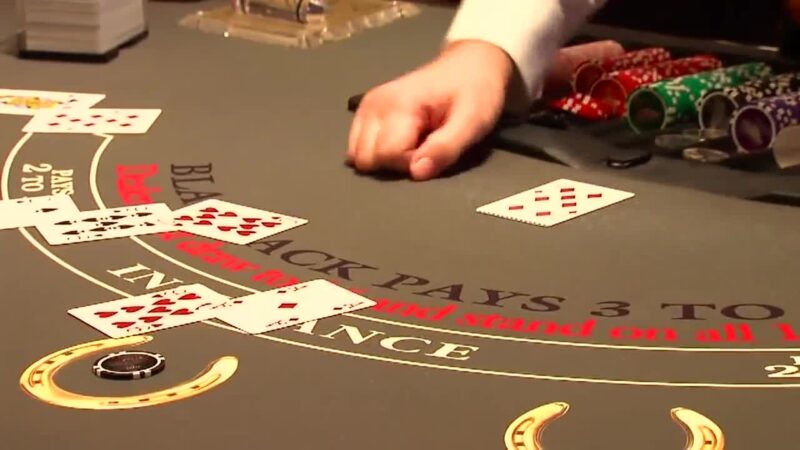In the glittering world of casino gambling, where the clinking of chips and the shuffle of cards create an intoxicating atmosphere, one question lingers in the minds of players: how much of success is determined by luck? Gamblers flock to tables and slot machines, driven by the thrill of the game and the hope of striking it rich. Yet, hidden beneath the bright lights and vibrant colors lies an intricate dance between chance and strategy. Some players meticulously calculate their probabilities, while others rely on whims, intuition, or a favorite lucky charm. As the dice roll and cards flip, the unpredictable nature of luck emerges, often overshadowing the skill and tactics that some may wish to hone. This exploration seeks to unravel the enigma of luck’s role in casino gambling, shedding light on how much it truly influences outcomes and whether its the wins or the losses that leave a more lasting impression on the player’s journey.
Introduction to Luck in Gambling

Luck is an elusive force that dances at the heart of casino gambling, weaving through every spin of the wheel and flip of the card. From the moment a player steps onto the vibrant casino floor, they are enveloped in an atmosphere charged with anticipation and excitement, where fortunes can change in an instant. While skill and strategy certainly have their places—especially in games like poker—luck reigns supreme in many others, such as slots and roulette, where fate decides the outcome. This dichotomy gives rise to a fascinating dynamic: the intertwining of chance and choice, where every bet can spark hope or despair. In understanding the role luck plays, one must contemplate not just its random nature, but also how it influences the psychology of gamblers, impacting decisions that can lead to exhilarating wins or devastating losses. Are we mere pawns in a game ruled by fate, or can skillful navigation through the whims of chance help us harness this unpredictable element to our advantage?
The Psychology of Luck

The psychology of luck plays a fascinating role in the hearts and minds of casino gamblers. This notion of luck—an intangible force that seemingly governs the fortunes of players—can evoke a spectrum of emotions, from elation to despair. For some, the mere act of stepping into a casino feels like an invitation to experience the whims of fate, where every spin of the slot machine or shuffle of the cards carries the promise of a windfall or the risk of loss. Cognitive biases, such as the gamblers fallacy, further complicate this landscape, leading individuals to believe that past outcomes can influence future results. Yet, amid the randomness of games, players often cling to superstitions—lucky charms, rituals, or specific seating positions—that provide comfort and a sense of control in an environment rife with unpredictability. Ultimately, the interplay between rationality and intuition in the pursuit of luck underscores not only the thrill of gambling but also our deep-seated desire to understand and master the chaotic nature of chance.
The Mechanics of Casino Games
Casino games are intricate systems where the interplay of rules, odds, and player choices creates a unique experience that can be both exhilarating and intimidating. Each game operates on a foundation of mathematical probabilities, determining the odds of winning or losing. For instance, while the spin of a roulette wheel or the roll of dice might seem purely random, they are influenced by precisely calculated odds that ensure the house maintains its edge. Yet, within this framework, there is a realm of strategy that players often navigate. Take poker, where knowledge of psychology and probability can sway the outcome significantly. In contrast, games like slot machines rely heavily on chance, their outcomes dictated by random number generators. This delicate balance between skill and luck creates a captivating tension, as players seek to understand the mechanics while hoping for that elusive stroke of fortune that could change their night.
Conclusion
In conclusion, while skill and strategy undeniably play a role in casino gambling, the element of luck is an ever-present force that greatly influences outcomes. Players often find themselves at the mercy of chance, regardless of their experience or knowledge of the game. This randomness can lead to unexpected wins or losses, highlighting the unpredictable nature of gambling as a whole. Understanding the balance between skill and luck is essential for anyone looking to navigate the world of casinos effectively. For those seeking to explore this dynamic further, resources such as https://spy-casino.com/ can provide valuable insights into the intricacies of gambling, offering a deeper perspective on how luck shapes the gaming experience. Ultimately, embracing the role of luck can enhance the enjoyment of gambling, allowing players to approach each game with a healthy mix of anticipation and acceptance.


